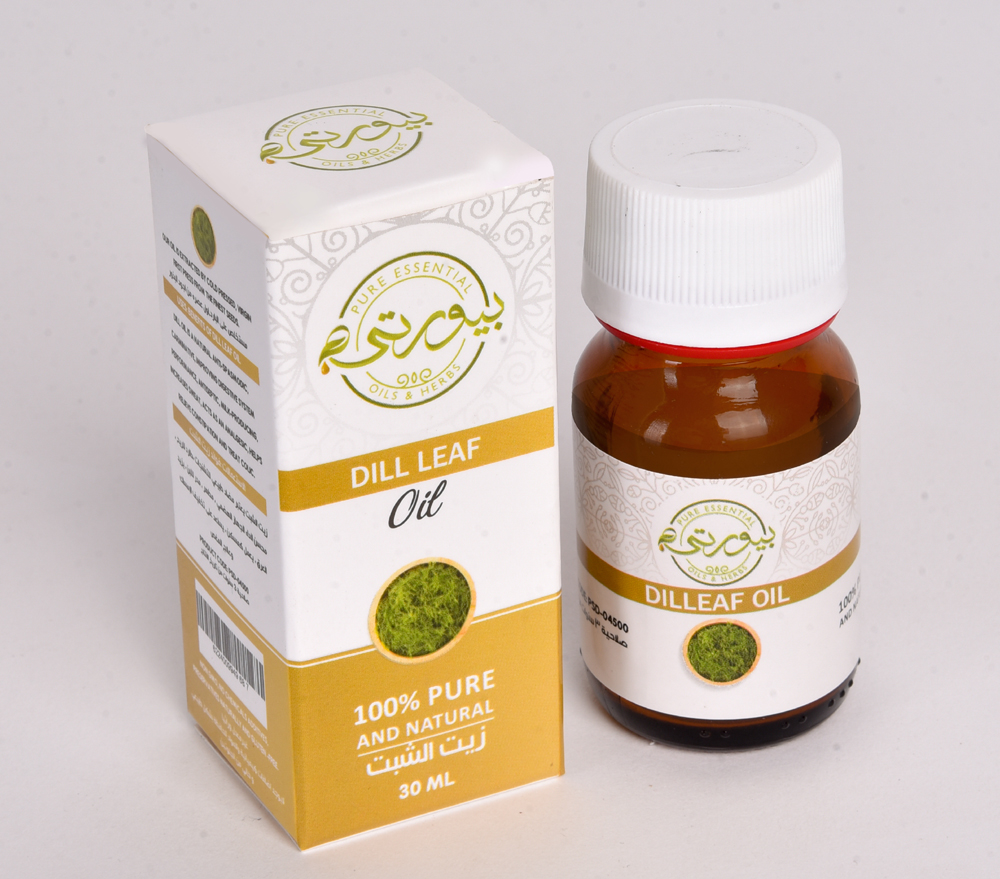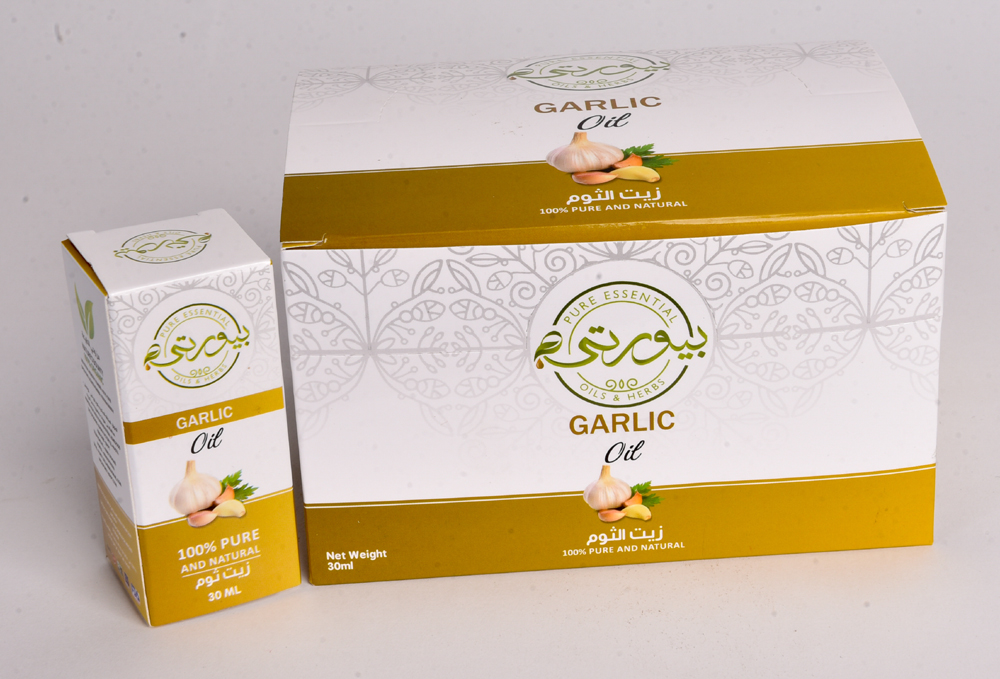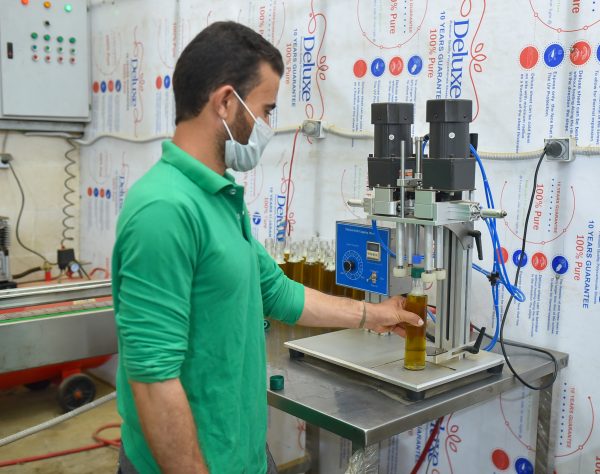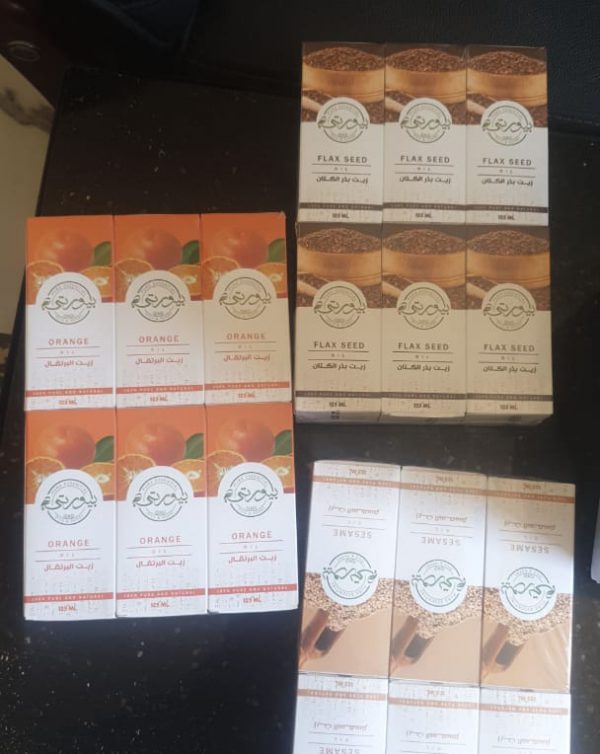Dill Infused Oil Dill herb, seed or oil infused in Carrier Oil
Login to view prices
Dill infused Oil, consists of a carrier oil that has been permeated (“infused”) with Dill or mixed with dill essential oil . The benefit to using an infused oil as opposed to a plain carrier oil is that the infused oil will contain the properties of both the carrier oil and Dill and is suitable for direct use for consumer
This Product for Consumer Retail packaging. if you are interested in Bulk Packaging to buy the oil as raw material, Please browse our Raw Materials
This product is infused oil in diluted form suitable for direct use not very concentrated like essential oil which can not be used directly. please read details below about what is infused oil?
Benefits Of Dill Essential Oil
The health benefits of Dill essential oil can be attributed to its properties as an antispasmodic, carminative, digestive, disinfectant, galactagogue, sedative, stomachic and sudorific substance.
Dill essential oil is extracted through steam distillation of dried seeds and the whole plant of dill, botanically known as Anethum Sowa. The basic components of dill essential oil are D-Carvone, Dillapiol, Eugenol, Limonene, Terpinene, and Myristicin. Since ancient times, dill seeds have been associated with magical healing powers.
Health Benefits of Dill Essential Oil
It actually isn’t magic, just science, but let’s explore some of the impressive health benefits of dill essential. Here are some of the health disorders for which dill oil is quite effective:
Relieves Spasms
Spasms can be very irritating and in extreme cases, can even be fatal. Spasms are cases of unwanted and abnormal contractions, either in the respiratory tracts, intestines, muscles, or nerves. These spasms may result in non-stop coughs, hiccups, cramps, muscle pulls, convulsions, or epileptic attacks. In extreme cases, a patient may have acute pain in the intestines or may run out of breath in cases of coughs and hiccups and may even collapse. Such attacks of spasms can be pacified with the help of dill essential oil. It has a relaxing effect on nerves, muscles, intestines and the respiratory system and pacifies spasmodic attacks, providing quick relief.
Prevents Infections
Dill oil is also known for its disinfectant properties. Added in food items, it protects them from getting spoiled from infection by microbes. When consumed, it cures the microbial infection in the colon, urinary tract, kidneys, and genitals. Finally, when applied externally, it protects the skin and wounds from infections and helps them heal quickly. It can be used in a diluted form for applying on the scalp to protect hair from various infections and even lice.
Facilitates Digestion
Dill seeds have been in use as a remedy to facilitate digestion for thousands of years. This digestive property of dill seeds comes from its essential oils. Dill oil promotes digestion by stimulating the secretion of digestive juices like gastric juices, acids, and bile in the stomach. Its aroma also stimulates the salivary glands and thus aids in the primary digestion of the food in the mouth.
Further, it stimulates the peristaltic movement of the intestines and helps the ingested food to advance through them, thereby facilitating digestion and preventing conditions like constipation and piles.
Removes Flatulence
Dill essential oil can efficiently handle gas trouble. It does not only help to remove gas from the intestine but also stops further gas from forming. Moreover, it gives the gases a safe downward passage by relaxing the muscles in the abdominal region.
Treats Breast Milk Deficiency
An infographic on the health benefits of dill essential oil
Dill essential oil helps to improve your health in many ways. Photo Credit: Shutterstock
A galactagogue is a substance or an agent that increases the formation of milk in the breasts. It also enhances the quality of the milk. This property is very helpful for lactating mothers and the baby’s overall health. Dill oil is a well known Galactogogue. Apart from increasing milk secretion, it also helps babies in another way. Babies who are fed on their mother’s milk often suffer from flatulence, indigestion, and gas. The carminative and digestive properties of dill oil are absorbed in the milk and can indirectly help the baby get rid of such problems.
Reduces Stomach Disorders
Dill oil is stomachic, being a stomachic means being an agent that acts as a tonic to keep the stomach healthy, toned and functioning properly. It keeps the stomach in proper shape, regulates the secretion of digestive juices and bile into it, keeps it safe from infections and also helps the healing process of ulcers or wounds, if any, in the stomach.
Heals Wounds
Dill essential oil acts as a vulnerary by promoting the quick healing of wounds, either external or internal and protecting them from infections.
Prevents Candida
Dill essential oil helps to prevent fungal diseases such as candida. Research suggests that it induces apoptosis in pathogen Candida albicans. [1]
Relieves Anxiety
Dill oil has beneficial sedating and calming effects on the nerves and the brain, making a person feel relaxed and satisfied. It is useful for getting rid of anxiety, tension, anger, depression and even hypertension. It also helps you to have a good night’s sleep at the end of the day.
Skin Care
Dill oil brings about sweating, thereby creating a feeling of lightness. This also helps to remove excess water, salt and toxic substances from the body, the lowering of blood pressure, a reduction of swelling and the protection of the skin’s overall health. Perspiration, except when it is abnormally heavy, is seen as a sign of good health.
Other Benefits and Uses
It helps ease constipation and cures colic. Apart from being beneficial in treating many diseases it also extensively used in agriculture to protect the crops such as rapeseed from infection. Use of dill oil helps to effectively prevent oilseed crops fungal disease caused by Sclerotinia sclerotiorum
===============
B2B Category
What is Infused Oil?
An infused oil, also referred to as a macerated oil, consists of a carrier oil that has been permeated (“infused” or “macerated”) with one or more herbs or the essential oil of that herb. The benefit to using an infused oil as opposed to a plain carrier oil is that the infused oil will contain the properties of both the carrier oil and the herbs or essential oil and is suitable for direct use for consumer without lot of precautions like concentrated essential oils
Some plants do not have much essential oil contained in them, and in those cases, it is rare or impossible to commercially find an essential oil for that plant species. Infusing the herb into a carrier oil, however, can be a suitable way to still use the herb for aromatherapy purposes.
Infused oils generally have an oily feeling that varies depending on the carrier oil used. They also are not as concentrated as essential oils.
What are carrier oils?
Carrier oils and essential oils are made from plants. Carrier oils are used to dilute essential oils and “carry” them to your skin. That’s because essential oils are potent and can cause irritation when applied directly to your skin.
Most carrier oils are unscented or lightly scented and don’t interfere with an essential oil’s therapeutic properties. They may be used alone or with other oils to nourish your skin.
=========================
What examples of carrier oils we use to make our infused oils?
1. Coconut oil
Coconut oil is an edible oil made from the meat of mature coconuts. It’s available in refined or unrefined varieties. Unrefined coconut oil comes from fresh coconut meat. It’s not processed with chemicals and retains its coconut aroma and flavor. Refined coconut oil comes from dried coconut meat, also called copra. It’s bleached and deodorized to remove contaminants, as well as the distinct coconut aroma and flavor. Refined coconut isn’t all-natural and isn’t recommended for use as a carrier oil.
Uses: Coconut oil contains skin-nourishing fatty acids and polyphenols, which make it a great carrier oil for massage oils and skin care preparations.
2. Jojoba oil
Jojoba oil comes from the seeds of the jojoba plant. It has a delicate, nutty aroma. Technically, jojoba isn’t an oil, but a wax with powerful moisturizing properties. It’s thought to closely mimic sebum, the skin’s natural oil. Using jojoba oil may help reduce the skin’s oil production in acne-prone people by making the skin think it’s produced enough oil.
Uses: Jojoba oil absorbs easily in the skin and doesn’t clog pores. This makes it a good carrier oil option for massage oils, facial moisturizers, and bath oils.
3. Apricot kernel oil
Apricot kernel oil is made from apricot seeds, also known as kernels. It’s an emollient oil high in fatty acids and vitamin E. It absorbs easily into the skin and has a slightly sweet, nutty scent. You can buy edible apricot kernel oil, or apricot kernel oil for cosmetic use only.
Uses: Apricot kernel oil is thought to help soften and calm irritated, itchy skin. Use it as a carrier oil to make massage oils, bath oil, and hair care preparations.
4. Sweet almond oil
Sweet almond oil has a strong, nutty aroma. It’s an edible oil made from the kernels of sweet almonds. The oil is lightweight and absorbs easily, and is a great moisturizer for dry skin.
It’s also used in general aromatherapy, but its strong scent may mask an essential oil’s aroma.
Uses: Sweet almond oil is one of the most popular carrier oils for skin care. It’s great in massage oils, bath oils, and soaps.
5. Olive oil
Olive oil comes from pressed olives. It’s best known as a healthy, edible oil with a fruity aroma, but it’s also used in aromatherapy as a carrier oil.
Extra-virgin olive oil is the preferred variety for aromatherapy and skin care preparations. Olive oil’s scent may interfere with the scent of some essential oils.
Uses: It’s packed with fatty acids and plant sterols, which make it great for cleansing and moisturizing dry skin. Use olive oil as a carrier oil for massage, facial cleansers, hair care, and homemade soaps.
6. Argan oil
Argan oil is made from kernels found inside the fruit of argan trees, which are native to Morocco. The oil is edible and is traditionally used to nourish the body inside and out. It has a nutty aroma and is rich in vitamins A and E, and monounsaturated fatty acids.
Uses: Argan oil can help treat dry skin and hair, wrinkles, and skin inflammation. This makes it a terrific carrier oil for general skin care and massage oils.
7. Black seed oil
Black seed oil is made from the Nigella sativa plant. Although it’s lesser known than other carrier oils, it’s richTrusted Source with unsaturated and saturated fatty acids. It’s also thought to have anti-inflammatory abilities.
Uses: Black seed oil is often used as a folk remedy to soothe skin conditions including eczema, acne, and psoriasis. With this in mind, it’s a great choice for facial care, massage oils, and general skin care.
=================================================
Quotation:
· Quantity: There minimum order per each packaging type. kindly contact us to know more details and discuss the best options for you
· Specification: 100% natural and Pure quality Organic or Conventional
· Documentation: COA, MSDS, TDS,.. Kindly see more information tab in the product page to see all documents available
· Payment terms: TT in advance to Our bank account
· Lead time: Shipping through 10 days from receipt of the payment.
· Sea Shipping Time: 35 days
· Air shipping time: 10 days
Branding Services
We also can do customized packaging for you to bottle whatever size you like. We can help in designing labels, selecting good bottles, and packaging. We deliver integrated solutions under your brand..
-
Login to view prices
-
Login to view prices
-
Login to view prices
-
Login to view prices
















